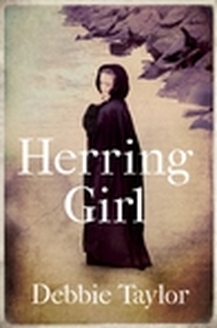
While previous fictional therapists, such as Gabrielle Fox, Max Fisher and Tom Seymour, have worked with children, Mary Charlton is the first I’ve encountered doing so outside a team setting. Twelve-year-old Ben Dixon finds his way to her on the recommendation of a friend, who is also a former client (I know, boundary violation alert). Although Mary knows that she can’t work with Ben without parental consent, her willingness to take him into her office and let him talk about his difficulties before this is forthcoming and, later, to spend time with him outside her consulting room when the boy’s father has expressly forbidden it puts her on ethical dodgy ground.
As you might imagine, I found it difficult to accept this novel on its own terms but, when I did, as with The First Bad Man, I found a lot to savour. Moving back and forth between the busy fishing port of 1898, and the same location over a century later, Ben seems to blossom as Mary helps him get acquainted with Annie. Yet as Anne’s story of friendship, first love and the mystery of her death develops, other characters from the present day find their previous incarnations implicated in her tale. When Mary’s former lover turns up and convinces her and her friends to let him film their investigations for a TV documentary, the tension builds with their suspicion that Annie’s murderer might be one of the adults on whom Ben now depends.
Heavily researched – and sometimes heavy with the ensuing exposition – the novel provides an interesting insight into the history of fishing, and overfishing, in a part of the world, like Embleton Bay in another novel, I know fairly well. It’s also heavy on coincidence, although Mary’s belief in the group reincarnation of souls provides a rationale that works within the parameters of the novel. While it reads as if the good guys are those who believe in karma, the novel is also sufficiently peopled with sceptics to prevent the cynical reader from feeling too estranged.
Herring Girl is highly unusual and ambitious novel, a historical murder mystery addressing themes of trust, masculinity, family, celebrity, identity and the nature of belief within the context of changes in the fishing industry with a smattering of Geordie dialect thrown in. Thanks to OneWorld for my review copy. For a couple of other novels with unusual methods for weaving past and present, see my post Awaiting the Grim Reaper.





















 RSS Feed
RSS Feed





















